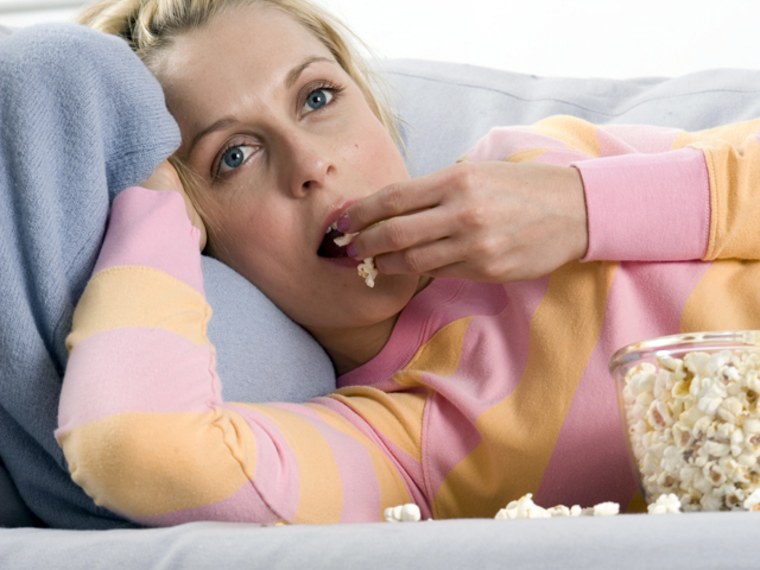Do you scarf down a free doughnut no matter how long it's been sitting in the office kitchen? Or huddle in your man cave for Sunday afternoon football and break open the adult beverages and chips even though you just finished lunch? Or have ice cream most evenings while watching TV?
Your environment can be a powerful trigger in shaping your eating habits. That's why a new study looked at how changing those surroundings may help change your ways. The research appears in the journal Personality and Social Psychology Bulletin.
In one experiment, 98 volunteers were handed a box of fresh or week-old popcorn before entering a movie theatre to watch the coming attractions. A second group of 60 participants was also given fresh or stale popcorn before watching music videos in a college meeting room.
Researchers wanted to find out if people who typically ate movie popcorn would eat more of it regardless of the setting or its freshness.
They'd expected that people with strong "popcorn eating habits" would still eat less stale popcorn than fresh in the theater, says David Neal, one of the study's lead co-authors. "We found that they ate, in statistical terms, exactly the same amount regardless of whether it was fresh or stale," he explains.
In other words, they stuffed their face out of habit because they were at the movies, whether the snack tasted good or not. But volunteers with a penchant for popcorn consumed less of it in the meeting room and also ate less of the stale stuff in this location than the fresh kind.
"We show that your personal history of having eaten in an environment a lot in the past is very important in forming habits that seem to increase mindless eating," suggests Neal, director of Empirica Research. Although you might not be aware of it, your brain associates the food with prior consumption in that setting.
In a second study, 89 moviegoers received either fresh or stale popcorn. Half of them were asked to eat with their non-dominant hand and the rest used their dominant hand.
Habitual popcorn eaters ate much less of the stale popcorn than the fresh when they used their non-dominant hand. It appeared to throw a wrench in their usual moviegoing behavior and made them focus more on what they were eating and how it tasted.
"Behavior change doesn't just come from setting goals and having good willpower," points out Neal. Avoiding environments that you know trigger your unwanted habits or changing the physical action in some way to disengage the habitual brain systems -- for example, switching hands -- also needs to be part of the solution, he suggests.
Of course, you can shift hands for finger foods, such as pizza or snacks, but it's impractical when eating with utensils, admits Neal. Other researchers, such as Cornell's Brian Wansink, have shown that using smaller dinner plates or serving smaller portions of unhealthy foods, can also help control consumption.
Readers, what's worked for you to help break a bad eating habit?
